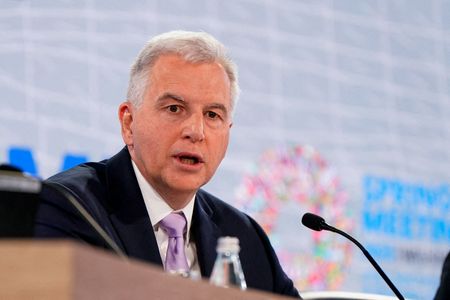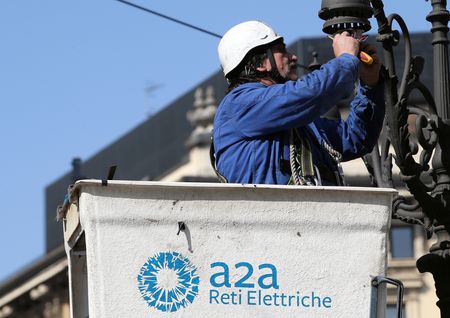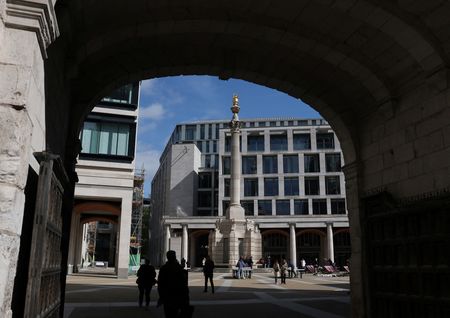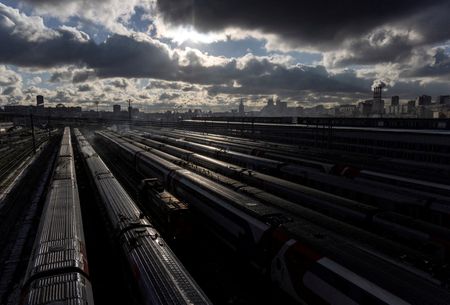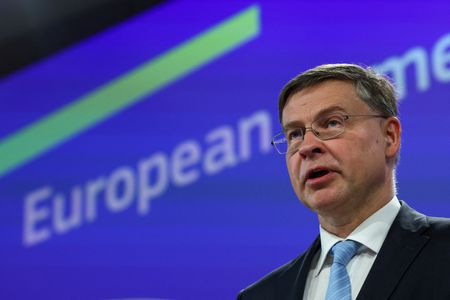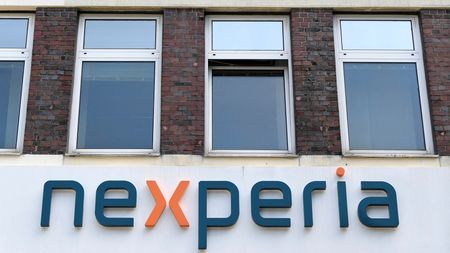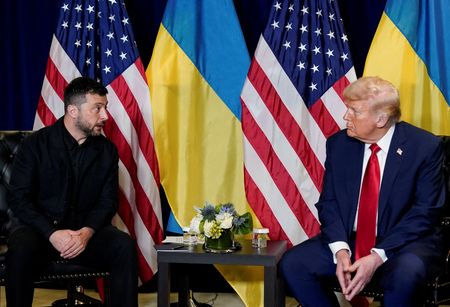By Jan Strupczewski
WASHINGTON (Reuters) -The European Union should jointly borrow to pay for European public goods like defence, research and development and energy, Alfred Kammer, the head of the International Monetary Fund’s European Department, told Reuters on Friday.
Joint borrowing by EU countries is a highly controversial topic. The bloc’s biggest economy, Germany, is especially sensitive to joint debt, but a number of other northern European countries are also sharply opposed.
The EU broke the taboo in 2020 when it jointly borrowed 800 billion euros to re-launch the European economy after the COVID-19 pandemic, and the option of more joint borrowing, while still very difficult, has been in the public debate since then.
EU URGED TO FINANCE RISE IN PUBLIC GOODS SPENDING WITH DEBT
The threat of Russian aggression in Europe has dramatically increased the need for defense spending, and competition from China and the U.S. has added to pressure to boost European innovation and lower energy prices.
“We are suggesting concretely to more than double the European Union spending on these public goods, going up from 0.4% of GNI (gross national income) to 0.9% of GNI,” Kammer said in an interview. That increase would be roughly equivalent to 100 billion euros ($117 billion).
“We have one more recommendation, and that is to finance this increase in the EU budget with common debt in order to pay for these European goods, because they are a must, they need to be done, the benefits accrue to everybody, and you want to make sure that they start accruing now,” he said.
“And with that, of course, you are going to service that debt over time. For that, you need to have an increase in own resources (revenues to EU budget) to do that service. So don’t shy away from thinking about common debt for common interests,” Kammer said.
Common EU defense projects, paid for jointly by the EU, are already happening through the EU programme of 150 billion euros of cheap EU loans, though probably more money would be needed given the huge scale of necessary defence investment.
Joint financing to create a European energy market would be new – the EU needs not only to switch away from burning fossil fuels to zero-emission energy sources but also build networks across borders to transport the electricity all over the bloc.
Investing in research and development and innovation would also benefit all 27 EU countries and the bloc’s 450 million citizens.
“Those public goods are going to support many other reform efforts, so they are key in terms of moving up,” Kammer said, adding that a coordination mechanism at the EU level is needed and doing so would save money.
“More coordination at the European level on the energy electricity market saves 7% of the costs of the clean transition,” Kammer said.
“Other studies have said that, on defense spending, when you move to common procurement and have a more coordinated effort, you would actually save 30% compared to national-level efforts,” Kammer said. “It’s cheaper to do them at the European level.”
The EU has been discussing the idea of public goods as part of the debate about the bloc’s next seven-year budget starting from 2028, but no conclusions have been agreed.
($1 = 0.8554 euros)
(Reporting by Jan Strupczewski; Editing by Paul Simao)

